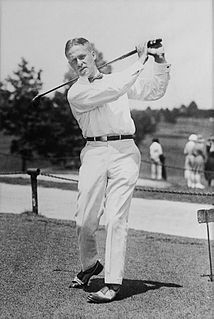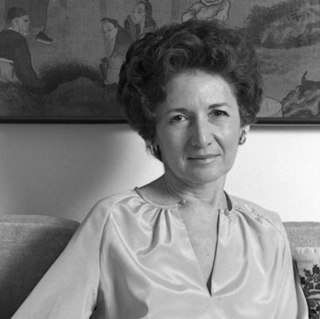Top 567 Architect Quotes & Sayings - Page 10
Explore popular Architect quotes.
Last updated on April 15, 2025.
I know for me as an artist, I think I do myself and my listeners a disservice, if I don't listen to some of the best music out there. If I was an architect or a carpenter, I'm going to want to study the best architects and carpenters and I'm going to appreciate their work, because they're going to inspire me to do well. And I just look at them as great architects and I just appreciate the gift that God gave them.
Knowing what you need doesn't always mean you know how to get it, though. I'd spent a long time hiding in my cave. No matter how much I might want to come out into the light, I knew it would hurt my eyes. I was a fool. A fool, but nevertheless too smart not to know I was the architect of my own demise, that it was time to put my past behind me. It was time to stop allowing the white elephants to stand unspoken of in my living room.
Metal buildings are the dream that Modern Architects had at the beginning of this century. It has finally come true, but they themselves don't realize it. That's because it doesn't take an Architect to build a metal building. You just order them out of a catalog - comes with a bunch of guys who put it together in a couple of days, maybe a week. And there you go - you're all set to go into business - just slap a sign out front.
The merit of Marx is that he suddenly produces a qualitative change in the history of social thought. He interprets history, understands its dynamic, predicts the future, but in addition to predicting it (which would satisfy his scientific obligation), he expresses a revolutionary concept: the world must not only be interpreted, it must be transformed. Man ceases to be the slave and tool of his environment and converts himself into the architect of his own destiny.
If we could sufficiently understand the order of the universe, we should find that it exceeds all the desires of the wisest men, and that it is impossible to make it better than it is, not only as a whole and in general but also for ourselves in particular, if we are attached, as we ought to be, to the Author of all, not only as to the architect and efficient cause of our being, but as to our master and to the final cause, which ought to be the whole aim of our will, and which can alone make our happiness.
At this day . . . the earth sustains on her bosom many monster minds, minds which are not afraid to employ the seed of Deity deposited in human nature as a means of suppressing the name of God. Can anything be more detestable than this madness in man, who, finding God a hundred times both in his body and his soul, makes his excellence in this respect a pretext for denying that there is a God? He will not say that chance has made him different from the brutes; . . . but, substituting Nature as the architect of the universe, he suppresses the name of God.
Everything that you've learned: 'Make a lot of money, have a nice house'. But they never teach you at school how to relate, how to communicate with others, how to share values with others. ...They teach you how to make a living. You become an optometrist, he becomes a physicist, she becomes a structural engineer, he's an architect. In the future, none of that. Everybody is trained to be a generalist, so they understand different cultures, different values, how we get to be the way we are. So no-one can ever use you for war or killing anybody or hurting anybody
Theologians and philosophers, who make God the creator of Nature and the architect of the Universe, reveal Him to us as an illogical and unbalanced Being. They declare He is benevolent because they are afraid of Him, but they are forced to admit the truth that His ways are vicious and beyond understanding. They attribute a malignity to Him seldom to be found in any human being. And that is how they get human beings to worship Him. For our miserable species would never lavish worship on a just and benevolent God from whom they had nothing to fear.
I think that (Alister) MacKenzie and I managed to work as a completely sympathetic team. Of course there was never any question that he was the architect and I was the advisor and consultant. No man learns to design a golf course simply by playing golf, no matter how well. But it happened that both of us were extravagant admirers of the Old Course at St Andrews and we both desired as much as possible to simulate seaside conditions insofar as the differences in turf and terrain would allow.
Some read for style, and some for argument: one has little care about the sentiment, he observes only how it is expressed; another regards not the conclusion, but is diligent to mark how it is inferred; they read for other purposes than the attainment of practical knowledge; and are no more likely to grow wise by an examination of a treatise of moral prudence, than an architect to inflame his devotion by considering attentively the proportions of a temple.
From Man or Angel the great Architect Did wisely to conceal, and not divulge, His secrets, to be scanned by them who ought Rather admire. Or, if they list to try Conjecture, he his fabric of the Heavens Hath left to their disputes - perhaps to move His laughter at their quaint opinions wide Hereafter, when they come to model Heaven And calculate the stars: how they will wield The mighty frame: how build, unbuild, contrive To save appearances; how gird the Sphere With Centric and Eccentric scribbled o'er, Cycle and Epicycle, Orb in Orb.
For me, architects and film directors operate similarly. They are practical. As an architect, you know what you want in the conception of a space - but you still need a lot of people to help you out. You need an engineer, interior architects. But a film is the same - you have all these elements. But in terms of concept, it's always about time. When you approach a building, you need time to go from point A to B. Buildings are designed as a journey and films are the same, you have an opening that you come through, an angle you follow, maybe a disruption in space.
Because it is a national landmark, there is only one way to judge the Kennedy Center - against the established standard of progressive and innovative excellence in architectural design that this country is known and admired for internationally. Unfortunately, the Kennedy Center not only does not achieve this standard of innovative excellence; it also did not seek it. The architect opted for something ambiguously called 'timelessness' and produced meaninglessness. It is to the Washington manner born. Too bad, since there is so much of it.
I would like to see every gay doctor come out, every gay lawyer, every gay architect come out, stand up and let that world know. That would do more to end prejudice overnight than anybody would imagine. I urge them to do that, urge them to come out. Only that way will we start to achieve our rights.
Working with Monk brought me close to a musical architect of the highest order. I felt I learned from him in every way--through the senses, theoretically, technically. I would talk to Monk about musical problems, and he would sit at the piano and show me the answers just by playing them. I could watch him play and find out the things I wanted to know. Also, I could see a lot of things that I didn't know about at all.
Auroville (City of Dawn) is an 'experimental' township in Viluppuram district in the state of Tamil Nadu, India near Puducherry in South India. It was founded in 1968 by Mirra Richard (since her definitive settling in India called '[The] Mother') and designed by architect Roger Anger. Auroville is meant to be a universal town where men and women of all countries are able to live in peace and progressive harmony, above all creeds, all politics and all nationalities. The purpose of Auroville is to realize human unity.
The world is too complicated in all parts and interconnections to be due to chance alone. I am convinced that the existence of life with all its order in each of its organisms is simply too well put together. Each part of a living thing depends on all its other parts to function. How does each part know? How is each part specified at conception? The more one learns of biochemistry the more unbelievable it becomes unless there is some type of organizing principle-an architect.
The authour who imitates his predecessors only by furnishing himself with thoughts and elegances out of the same general magazine of literature, can with little more propriety be reproached as a plagiary, than the architect can be censured as a mean copier of Angelo or Wren, because he digs his marble out of the same quarry, squares his stones by the same art, and unites them in columns of the same orders.
If we want sincere harmony, peace and joy in our lives, we can have them, but we must be willing to do the work. We must make maintaining an awareness of our spiritual natures first in our lives. Our inner world is the architect of our external world. We don't lose faith in the goodness of life because we become angry and depressed. We become angry and depressed because we lose faith in the goodness of life.
We have feudal governments in a commercial age. It would be but an easy extension of our commercial system, to pay a private emperor a fee for services, as we pay an architect, an engineer, or a lawyer. If any man has talent for righting wrong, for administering difficult affairs, for counselling poor farmers how to turn their estates to good husbandry, for combining a hundred private enterprises to a general benefit, let him in the county- town, or in Court-street, put up his sign-board, Mr. Smith, Governor, Mr. Johnson, Working king.
Economy denotes the the proper management of materials and of site, as well as a thrifty balancing of cost and common sense in the construction of works. ...the architect does not demand things which cannot be found or made ready without great expense. For example: it is not everywhere that there is plenty of pitsand, rubble, fir, clear fir, and marble... Where there is no pitsand, we must use the kinds washed up by rivers or by the sea... and other problems we must solve in similar ways.
I don't think I would have been a good architect. Really, I have thought about this from time to time, and I might have wound up like my father, who never did find that which he could devote his life to. He sort of drifted from job to job. He was a traveling salesman, he was a bookkeeper, he was an office manager, he was here, there, there. And however enthusiastic he was at the beginning, his job would bore him. If I hadn't had the writing, I think I might have replicated what he was doing, which would not have been good.
As an architect it is very important that you distinguish between different realities. There's the reality of the drawing and the reality of the building. So one could say, or at least it is the common belief that architecture has to be built; I always denied that, because ultimately it is based on an idea. I don't ever need a building to verify my idea. Of course, what with a building is more its vanity and actual physical experience. But I anticipate; I wouldn't even build it if I could not anticipate how it would be.
In creating a building, architects do think they're making the world a better place. And then they hope to make the world an even better place by making another thing which will be even bigger than the last thing... and it is part of the pathology of being an architect to believe thus, and they do believe it, despite all the evidence to the contrary.
Never talk to a client about architecture. Talk to him about his children. That is simply good politics. He will not understand what you have to say about architecture most of the time. An architect of ability should be able to tell a client what he wants. Most of the time a client never knows what he wants.
Before receiving your instruction, I must tell you what happened to me one day. I had just had a closet built at the end of my garden. I heard a mole arguing with a cockchafer; 'Here's a fine structure,' said the mole, 'it must have been a very powerful mole who did this work.' 'You're joking,' said the cockchafer; 'it's a cockchafer full of genius who is the architect of this building.' From that moment I resolved never to argue.
You’re kind of a psycho. I get that.” “I might be,” Monica agreed, and gave her a slow, strange smile. “You’re one smart little freak. Now run away, smart little freak, before I change my mind and stick you in one of these old suitcases for some architect to find a hundred years from now.” Claire blinked. “Archaeologist.” Monica’s eyes turned winter cold. “Oh, you’d better start running away now.

























